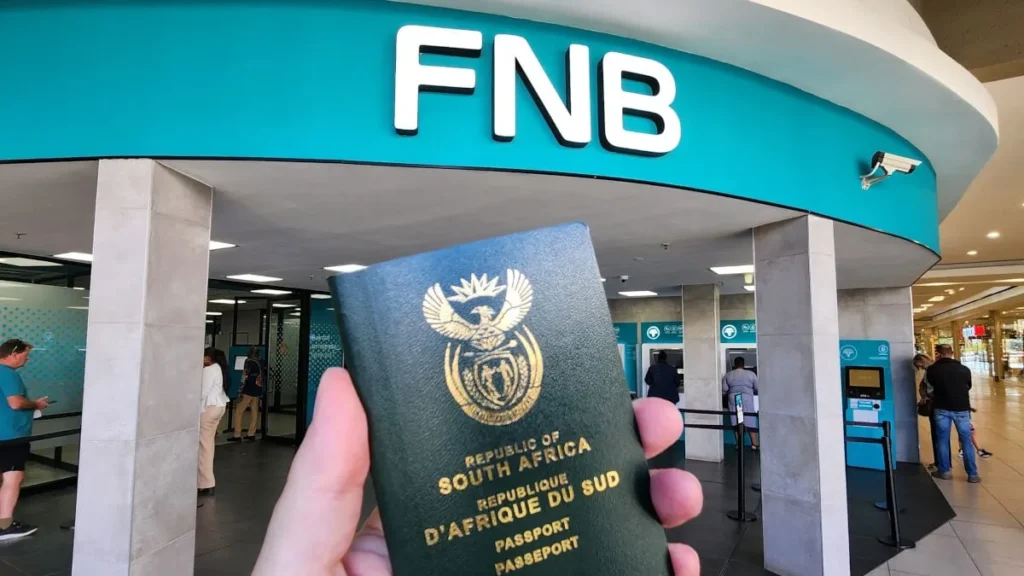30 Bank Branches Offering South African Passport and Smart ID Services
Home Affairs expands its digital footprint with 30 bank branches offering South African passport and smart ID services, a milestone that promises more convenience and accessibility for citizens across the country.
The Department of Home Affairs has partnered with leading banks to bring vital identification services closer to where people live and work, aiming to drastically reduce queues, delays, and inefficiencies that have plagued traditional Home Affairs offices.
Home Affairs’ Digital Expansion Through Banks
Since its introduction in 2016, the eHomeAffairs programme has made it possible for South Africans to apply for and collect their smart ID cards and passports at selected bank branches. For years, progress stagnated at just 30 branches due to logistical and staffing challenges.
However, a new partnership model announced by Minister Leon Schreiber promises to expand coverage fivefold by 2026. Instead of relying solely on departmental staff, the new system allows banks to use their own employees and infrastructure, ensuring greater efficiency and faster service delivery.
“We expect to add at least 153 more bank branches for smart ID and passport services by March 2026,” said Schreiber.
Banks Joining the Home Affairs Digital Drive
The new model includes major financial institutions such as Absa, African Bank, Capitec, Discovery Bank, FNB, Nedbank, Standard Bank, and TymeBank. This collaboration is a significant step toward modernising South Africa’s digital government infrastructure.
Capitec Bank, which serves the largest number of customers in the country, plans to open its first 10 service branches in October 2025, with a goal of reaching 100 branches by early 2026 and up to 300 in the long term.
Standard Bank, currently the biggest participant in the eHomeAffairs programme, offers the services at nine branches and plans to add 20 more by March 2026. The bank aims to expand to 200–300 branches within the next year, providing greater national coverage.
FNB, which has issued the most smart ID cards and passports under the pilot phase, intends to increase its number of branches from 7 to 22 by March 2026 and eventually reach 240 branches by July 2026.
Absa will also grow its network from 6 to 19 participating branches, while Nedbank plans to scale from 6 to 26 branches by August 2026.
African Bank and Discovery Bank are new entrants to the programme, with plans to open service points in 2026. Discovery Bank, despite being digital-only, intends to provide limited access at its corporate offices in Sandton.
eHomeAffairs: A Gateway to Digital Citizenship
The eHomeAffairs initiative is central to South Africa’s drive toward digital governance. It allows citizens to apply online, book appointments, and collect their documents at convenient bank branches.
The previous system depended heavily on Home Affairs staff working from within bank facilities, creating delays due to staffing shortages and system failures. The new collaboration aims to eliminate these issues by integrating banks’ existing technology and customer service models.
Minister Schreiber highlighted that the government’s earlier failure to use modern technology effectively limited expansion. “We are now ensuring that digital infrastructure is extended to rural and urban communities, making identification services accessible to all,” he said.
The 30 Bank Branches Currently Offering Services
Here’s a breakdown of the 30 bank branches currently providing smart ID and South African passport services nationwide:
-
Standard Bank (9) – Canal Walk, Centurion, Jubilee Mall, Kathu Mall, Killarney Mall, Kingsmead, Mitchell’s Plain Promenade, Newton Park, and Simmonds Street.
-
FNB (7) – Burgersfort, Centurion Lifestyle Centre, Cornubia, Glen Shopping Centre, Greenpoint, Lynwood, and Merchant Place.
-
Nedbank (6) – Arcadia, Constantia Kloof, Durban North, Nelspruit, Rivonia, and St Georges Mall.
-
Absa (6) – Centurion Lifestyle Centre, Key West Krugersdorp, Port Elizabeth, Sandton City, Stellenbosch, and Absa Towers Johannesburg.
-
Discovery Bank (1) – Head Office, Sandton.
-
Investec (1) – Sandown, Sandton.
These branches represent the first phase of a wider rollout that will eventually cover hundreds of locations nationwide.
The Future of Digital ID and Passport Access
The expansion of 30 bank branches offering South African passport and smart ID services marks a turning point in how government interacts with citizens. The aim is to make public services as simple and efficient as private banking.
The department confirmed that the new model would not only improve access but also cut costs, as banks will now shoulder more of the operational burden. Citizens, on the other hand, will benefit from shorter waiting times, streamlined digital bookings, and better service quality.
By March 2026, South Africans can expect a nationwide network of bank-based Home Affairs service points, bringing essential identification services to both urban and rural communities.
Public Reaction and Benefits
Many South Africans have praised this initiative, saying it will reduce travel time and long queues at government offices. The expansion will also benefit working citizens who can now apply during lunch breaks or while managing other errands at their bank branches.
However, some concerns remain about the digital divide in rural areas. Experts suggest that mobile units and partnerships with community banks could further close this gap.
“This partnership represents progress toward a fully digital South Africa,” said a Home Affairs official. “Our goal is to ensure every citizen can access identification services without barriers.”
Conclusion: A Step Toward Digital Transformation
The rollout of 30 bank branches offering South African passport and smart ID services is a major stride in modernising public service delivery. With Home Affairs leveraging partnerships with major financial institutions, South Africa is positioning itself for a digitally inclusive future.
As this programme scales to more than 180 bank branches by 2026, millions of citizens will enjoy faster, easier access to essential identification services—proving that when government and banks work together, everyone benefits.








